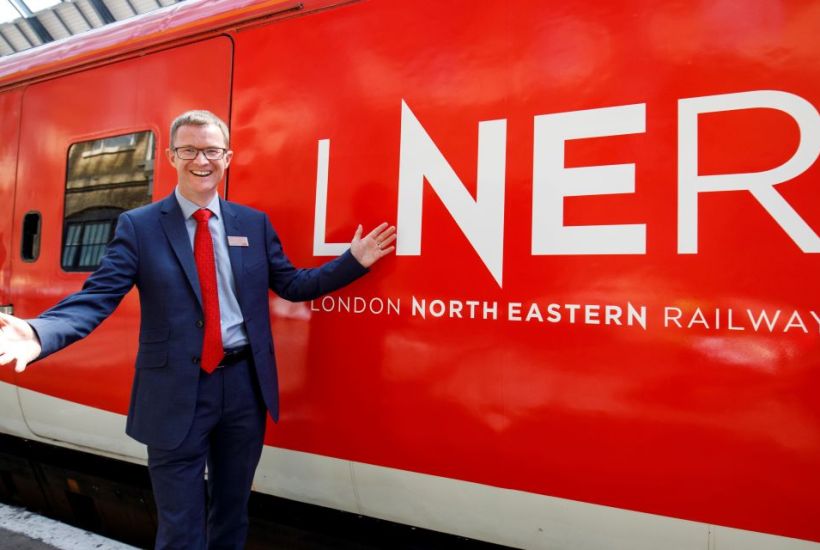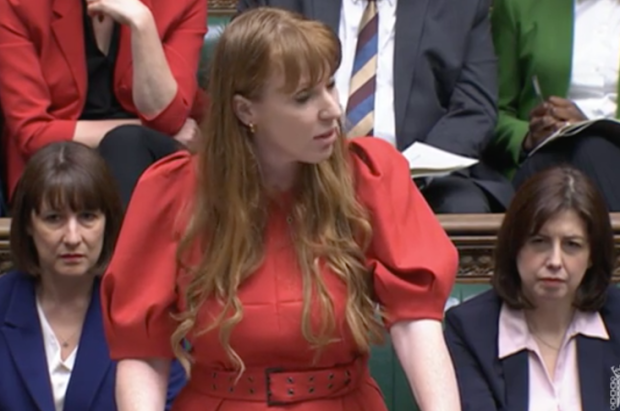Picture the scene. You’re on a train when the following message comes over the tannoy:
‘Good afternoon, ladies and gentlemen, boys and girls.’
Are you offended? One passenger travelling on a London North Eastern Railway (LNER) train was.
‘So as a non-binary person this announcement doesn’t actually apply to me so I won’t listen,’ the commuter wrote. Remarkably, LNER didn’t simply ignore or dismiss this complaint. It apologised:
‘I’m really sorry to see this, Laurence, our Train Managers should not be using language like this, and I thank you for bringing it to my attention. Please could you let me know which service you are on and I will ensure they remain as inclusive as we strive to be at LNER.’
But is rebuking one of its employees for wishing passengers a ‘good afternoon’ really a sign of inclusivity?
As a young feminist, quite purist and strict, I would often tell men off for calling me a ‘lady’. I would also get cross at the title ‘miss’. But I can’t imagine complaining to a train company or any other public body about it would have got me far. Women have objected to sexist and excluding language for decades, and guess what? We are ignored.
So how scared of the trans mob must LNER be to act so swiftly? Would the company respond so quickly following complaints about serious issues, as opposed to frivolous, self-indulgent nonsense?
A couple of years ago, when trying to organise travel for my disabled, wheelchair-using father to visit London, I made numerous attempts to contact LNER to enquire about their wheelchair accessibility. The social media team told me it did not have that information. Interestingly, the same team is able to proclaim that ‘ladies and gentlemen’ is inappropriate, and also has the power to publicly take action.
Next time I am on a train, I am thinking of insisting the manager specifically greets lesbians as opposed to questioning my very right to exist. After all, we don’t want anyone feeling left out.
So let’s not leave it at ‘greetings, non-binary people’, because we would be excluding those who identify as agender, bigender, cisgender, genderfluid, gender-queer or gender-variant. An entire journey from London to Inverness could have been completed before the full list of identities has been announced.
It seems, though, that LNER is determined not to see sense. In a statement, the company stood by its initial response:
‘We are committed to diversity and inclusion in all that we do for our customers, colleagues and communities, and encourage our onboard teams to welcome all customers onboard.’
So it looks like it’s ‘goodbye ladies and gents’, for those travelling on an LNER train. And goodbye common sense. ‘LNER sits within the bottom 10 commuter train companies,’ according to Which?.
Isn’t it time for LNER to focus on ensuring their trains run on time, rather than placating passengers determined to find offence in everyday expressions?
<//>
Got something to add? Join the discussion and comment below.
Get 10 issues for just $10
Subscribe to The Spectator Australia today for the next 10 magazine issues, plus full online access, for just $10.



















Comments
Don't miss out
Join the conversation with other Spectator Australia readers. Subscribe to leave a comment.
SUBSCRIBEAlready a subscriber? Log in